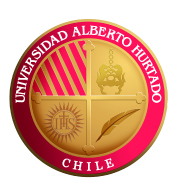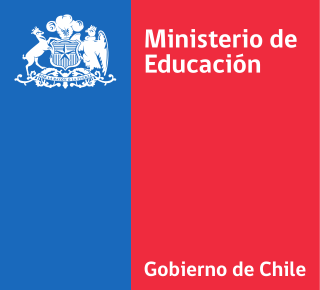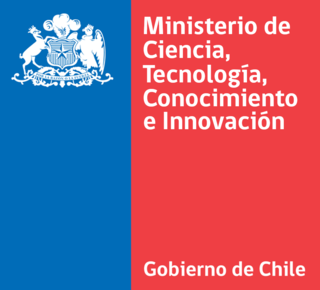Related Research Articles
Education in state institutions is at the initial, primary, secondary and tertiary levels and in the undergraduate university level. Private education is paid, although in some cases state subsidies support its costs. According to studies by UNESCO, education in Argentina and Uruguay guarantee equality to have institutional features that hinder the commercialization of education, as well as Finland has characteristics that favor multiethnic population education and special education, education favors Argentina equality. According to the last census, the illiteracy rate is 1.9%, the second lowest in Latin America. In the last decade, Argentina has created nine new universities, while the outflow of university students increased by 68%.

Lesbian, gay, bisexual, and transgender (LGBT) civil rights in Chile have advanced significantly in the 21st century and are now quite progressive.

Alberto Hurtado University is a Jesuit university located in Santiago, Chile. Established in 1997, the university was created from the merger of three separate institutes: Instituto Latinoamericano de Doctrina y Estudios Sociales (ILADES), the Centro de Investigación, Desarrollo de la Educación (CIDE), and the Fundación Educacional Roberto Bellarmino. The university is named after a famous Chilean Jesuit Saint, Father Alberto Hurtado. UAH is a member of the AUSJAL and of FLACSI.
Universidad San Sebastián is a private autonomous Chilean university with its headquarters situated in Santiago de Chile. It is also located in Concepción, Valdivia, Osorno and Puerto Montt.
Education in Spain is regulated by the Ley Orgánica 8/2013, de 9 de diciembre, para la mejora de la calidad educativa that expands upon Article 27 of the Spanish Constitution of 1978. The Spanish education system is compulsory and free for all children aged between 6 and 16 years and is supported by the national government together with the governments of each of the country's 17 autonomous communities.
The Christian Life Movement is a lay ecclesial movement, founded in 1985, in Peru. At that time, a number of initiatives from members of the Sodalitium Christianae Vitae had already begun. Luis Fernando Figari, the Founder of the Sodalitium, conceived the idea of gathering those people and initiatives together in an ecclesiastic movement. The Christian Life Movement forms part of the Sodalit Family, which shares a common spirituality, called the Sodalit spirituality.

Education in Chile is divided in preschool, primary school, secondary school, and technical or higher education (university).The levels of education in Chile are:
Crece is an international educational non-profit founded in Santiago, Chile in 2005 by a group of Catholic university students associated with the Christian Life Movement. The non-profit first began with the name CreceChile and later expanded internationally. Crece's mission is to support disadvantaged families through an integral education. This concretely occurs through the education of adults who have not completed their high school education, and prepares them to be able to pass the US equivalent GED in their respective countries.

The Puerto Rico Department of Education (PRDOE) is one of the statewide public education system in the United States, with. The PRDOE is the state education agency responsible of managing public schools in Puerto Rico as well as the island's education system and curricula. The department, headquartered in Hato Rey, San Juan, is the result of a United States state department of education. It is also the largest agency of the executive branch of Puerto Rico, with, as of 2019, an annual budget of more than $3.5 billion USD and over 72,000 staff—including more than 41,000 teachers, and as of 2020 the department is the third-largest school district in the United States by enrollment, with over 276,413 students and 857 schools.
Enlaces is a Chilean educational program designed to create a structural change in Chilean education in order to prepare youth, along with their parents and guardians, to participate in the emergent society of knowledge, and to create networks of communication that help integrate them with the world. Enlaces was started in 1992 by Chile's Ministry of Education.

Colegio de la Preciosa Sangre de Pichilemu, often shortened to Preciosa Sangre, is a coeducational Roman Catholic private state-subsidized day school, serving students in preschool through twelfth grade, located in the commune of Pichilemu, Libertador General Bernardo O'Higgins Region, Chile.

Eruviel Ávila Villegas is a Mexican politician, member of the Institutional Revolutionary Party, and the Governor of the State of Mexico from 2011 to 2017. Before that, he was Mayor of Ecatepec de Morelos twice, from 2003 to 2006 and from 2009 to 2012, and deputy of the State of Mexico's Congress.

The 2011–2013 Chilean protests – known as the Chilean Winter or the Chilean Education Conflict – were a series of student-led protests across Chile, demanding a new framework for education in the country, including more direct state participation in secondary education and an end to the existence of profit in higher education. Currently in Chile, only 45% of high school students study in traditional public schools and most universities are also private. No new public universities have been built since the end of the Chilean transition to democracy in 1990, even though the number of university students has increased.

Since March 15, 2022, Chile bans discrimination based on "sex characteristics" under Law 21,430 on Guarantees and Integral Protection of the Rights of Children and Adolescents. Between December 2015 and August 2016, the Chilean Ministry of Health issued a regulatory suspension of non-necessary cosmetic medical interventions on intersex children. The guidelines were replaced by guidance permitting intersex medical interventions.

The 2019–2022 Chilean protests, known in Chile as the Estallido Social, were a series of massive demonstrations and severe riots that originated in Santiago and spread to all regions of Chile, with a greater impact in the main cities, such as Greater Valparaíso, Greater Concepción, Greater La Serena, Arica, Iquique, Antofagasta, Rancagua, Chillán, Temuco, Valdivia, Osorno, Puerto Montt and Punta Arenas, developed mainly between October 2019 and March 2020. Civil protests took place throughout Chile in response to a raise in the Santiago Metro's subway fare, a probity crisis, cost of living, privatisation and inequality prevalent in the country.

Helia Águeda Molina Milman is a Chilean physician, educator, and politician. She served as Minister of Public Health in 2014, during the second government of Michelle Bachelet. She is currently a professor at the University of Santiago's Faculty of Medical Sciences.

Sebastián Iglesias Sichel Ramírez is a Chilean lawyer, professor, ex minister of State and politician who served as president of the Banco del Estado de Chile from June 2020 until December 2020. He also previously served as Minister of Social Development and Family and executive vice president of Corfo under the second government of Sebastián Piñera. He was an independent candidate in the 2021 Chilean presidential election who ran under the centre-right Chile Podemos Más coalition.

The Ministry of Science, Technology, Knowledge and Innovation is the Ministry of State of Chile in charge of structuring, promoting, coordinating and promoting science, humanities and technological development activities in all their stages, to contribute to the sustainable development and social welfare of the country. It was created as a replacement for the National Commission for Scientific and Technological Research, which was in charge of the Ministry of Education. The current minister of the ministry is the biologist Flavio Salazar, who took office on 11 March 2022, acting under the government of Gabriel Boric.
Olga Ida Magdalena Grau Duhart is a contemporary Chilean writer, full professor, and philosopher, a specialist in gender, sexuality, philosophy, education, and literature.

María Josefa Errázuriz Guilisasti, also known as "Pepa" Errázuriz, is a Chilean politician. She was mayor of Providencia between 2012 and 2016. She currently serves as councilor of the same commune since 2021.
References
- 1 2 "Director de CreceChile: Hemos olvidado el rol de la familia en la educación". Eldefinido.cl. 5 April 2013. Retrieved 2022-05-05.
- ↑ "Trayectoria | CreceChile". Archived from the original on 2013-06-10. Retrieved 2013-06-06.
- ↑ "Misión / Visión | CreceChile". Archived from the original on 2013-06-10. Retrieved 2013-06-17.
- ↑ "CreceChile: Apostando por mejorar la educación". noticias.universia.cl. Archived from the original on 2016-03-04.
- ↑ "El voluntariado cobra protagonismo en el currículum a nivel mundial - Diario EL PAIS - Montevideo - Uruguay". Historico.elpais.com.uy. 2013-03-15. Retrieved 2022-05-05.
- ↑ Twittear. "Proyectos con el Sello Más por Chile - Sociedad Civil - Ministerio de Desarrollo Social y Familia". Masporchile.ministeriodesarrollosocial.gob.cl. Retrieved 2022-05-05.